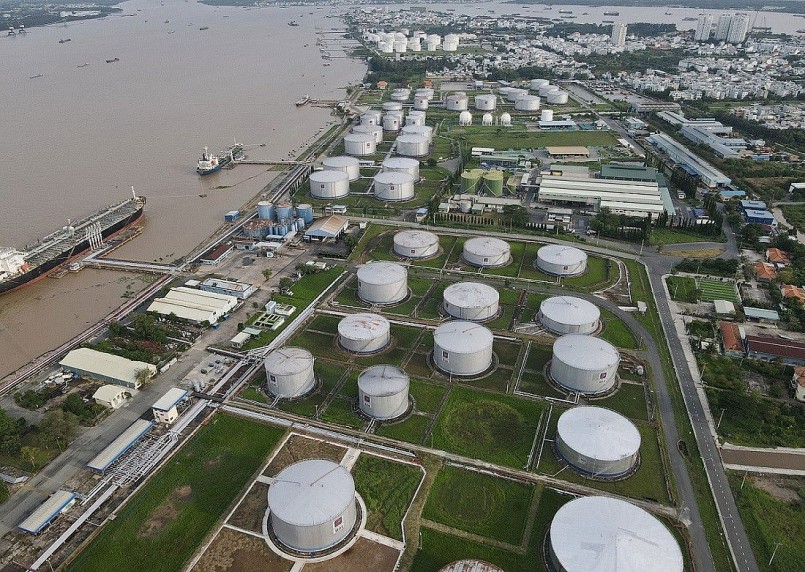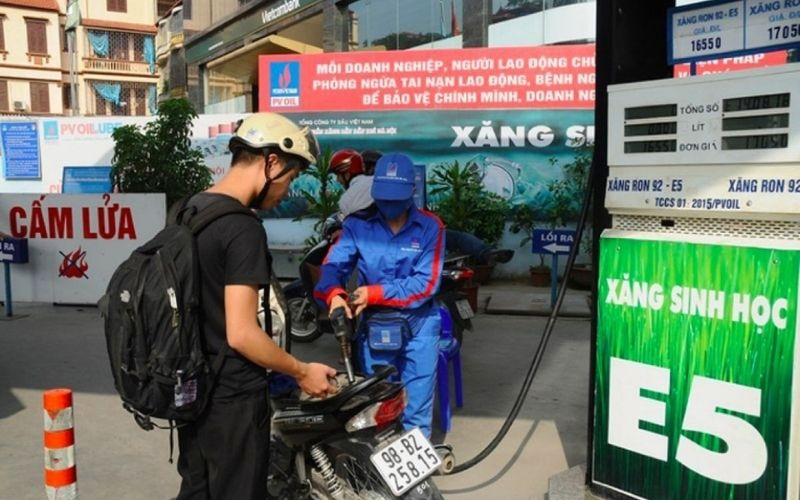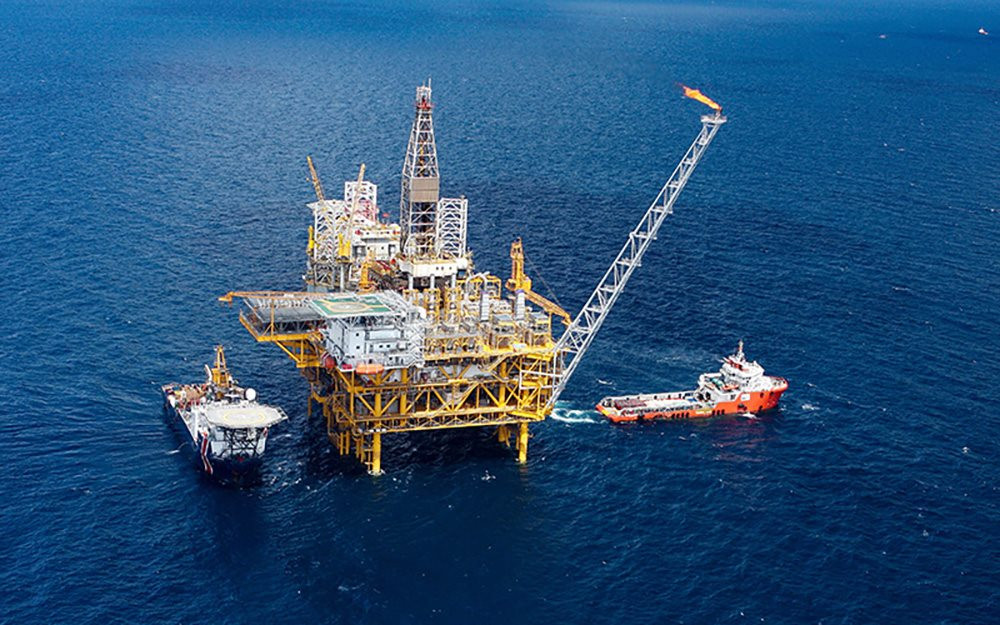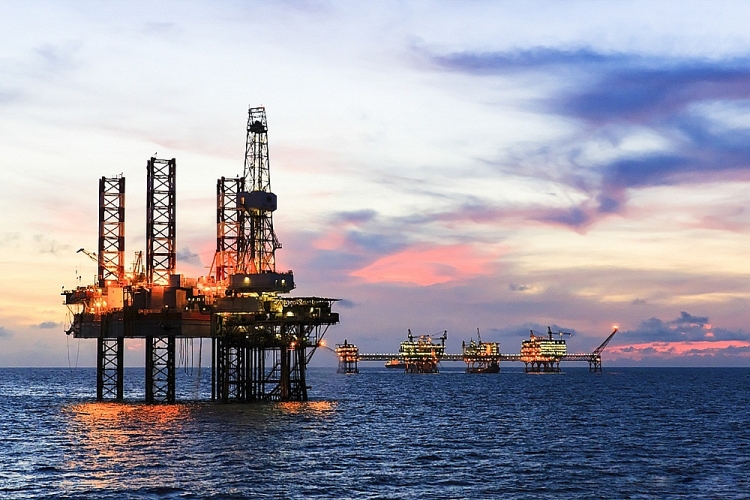To approve the national plan for storage and supply of petroleum and gas in Vietnam
What are the main contents of the national planning for the reserve and supply of petroleum and gas in Vietnam in the 2021–2030 period, with a vision to 2050? - Minh Xuan (Hanoi)

To approve the national plan for storage and supply of petroleum and gas in Vietnam (Internet image)
Contents of the national planning for petroleum and gas reserves and supply infrastructure in Vietnam
Decision 861/QD-TTg approving the national planning for petroleum and gas reserve and supply infrastructure in Vietnam for the period of 2021-2030, with a vision to 2050, was issued by the Prime Minister of Vietnam on July 18, 2023.
Objects, scope of planning
System of crude oil, petroleum, and liquefied natural gas (LNG) and liquefied petroleum gas (LPG) storage for production, commercial, and national reserves on a national scale; the system of petroleum and gas pipelines from the source to the place of consumption (excluding the infrastructure system for storing and supplying petroleum and gas internally distributed by the armed forces).
Warehouses of raw materials and products of refineries and petrochemical plants, gas processing plants, fuel storage of power plants; gas pipelines from offshore gas fields to the mainland, gas supply pipelines from ports to warehouses, refineries, petrochemical plants, gas processing plants, and power plants in accordance with the Master Plan on energy and national electricity development planning.
Development point of view
Developing a system of infrastructure for storing and supplying petroleum and gas to ensure sustainability and rationality in terms of economy - society - environment - culture - defense and security.
Developing a system of infrastructure for storing and supplying petroleum and gas to ensure elasticity, ensure reserve capacity, and meet development requirements in the entire territorial space; ensuring sustainable development associated with environmental protection, natural disaster prevention and control, and response to climate change; Use land effectively, economically, and strictly protect the area of land specialized in rice cultivation, protection forest land, special-use forest land, production forest land, natural forests, and nature conservation zones.
Developing the infrastructure system for storing and supplying petroleum and gas to ensure the harmony of national, local, business, and people's interests.
Developing a modern system of petroleum storage and supply infrastructure; that meets the standards, regulations, and techniques and is in accordance with the requirements of development and international economic integration
Developing infrastructure for storage and supply of petroleum and gas on the basis of taking advantage of the capacity of transport connectivity, exploiting all domestic resources; and encouraging foreign investors to invest in the infrastructure system to reserve and supply petroleum and gas.
Development objectives
1. Overall objectives
To develop the national petroleum and gas reserve and supply infrastructure system, including strategic reserves (national reserve); production reserves, commercial reserves, transportation, circulation, and distribution, meeting economic, technical, and environmental criteria, and ensuring adequate, safe, and continuous reserve and supply for socio-economic development, security, and defense. To ensure the reserve capacity of crude oil and petroleum products nationwide to reach 75–80 days of net import, strive to achieve 90 days of net import; ensuring gas reserve capacity to meet domestic market demand and raw gas for the energy and industrial sectors.
2. Specific goals
**About reserve infrastructure
- Petroleum storage infrastructure
+ Production reserve infrastructure: Ensuring the storage infrastructure for crude oil, raw materials, and products according to the design of the petroleum production and processing plants to operate stably, meet at least 20 days of net import in the period 2021–2030 and up to 25 days of net import in the period after 2030.
+ Commercial reserve infrastructure: Ensure commercial reserve infrastructure to stabilize domestic market demand with an additional capacity of 2,500–3,500 thousand m3 in the period of 2021–2030, reaching a capacity of up to 10,500 thousand m3 in the period after 2030, meeting 30-35 days of net import.
+ National reserve infrastructure: Ensuring infrastructure for national reserves with a capacity of 500–1,000 thousand m3 of petroleum products and 1,000–2,000 thousand tons of crude oil, meeting 15-20 days of net import in the period of 2021–2030; ensuring a capacity of 500–800,000 m3 of petroleum products and 2,000–3,000 thousand tons of crude oil, meeting 25–30 days of net import in the period after 2030.
- Gas reserve infrastructure
+ Ensure storage infrastructure for LPG with a capacity of up to 800,000 tons in the period 2021–2030 and up to 900,000 tons in the period after 2030.
+ Ensure the LNG storage infrastructure has enough import capacity to meet the market's consumption demand; contribute to ensuring the supply of raw material gas demand for energy and industries with a storage capacity of up to 20 million tons/year in the period of 2021–2030 and up to 40 million tons/year in the period after 2030.
**Regarding supply infrastructure
Developing petroleum and gas supply infrastructure to meet the demand for pipeline transportation from supply sources (refineries, petroleum terminals, LPG distribution stations, and imported LNG warehouses) to industrial and civil consumption centers and households.
More details can be found in Decision 861/QD-TTg, effective from the date of signing.
Duong Chau Thanh
- Key word:
- Petroleum
- gas
- in Vietnam
- Number of deputy directors of departments in Vietnam in accordance with Decree 45/2025/ND-CP
- Cases ineligible for pardon in Vietnam in 2025
- Decree 50/2025 amending Decree 151/2017 on the management of public assets in Vietnam
- Circular 07/2025 amending Circular 02/2022 on the Law on Environmental Protection in Vietnam
- Adjustment to the organizational structure of the Ministry of Health of Vietnam: Certain agencies are no longer listed in the organizational structure
- Vietnam aims to welcome 22-23 million international tourists in Vietnam in 2025
-

- Strictly handle acts of hoarding goods in anticipation ...
- 08:31, 28/12/2024
-

- Guidance on the transfer of overseas oil and gas ...
- 16:00, 04/11/2024
-

- Guidance on establishing a company for managing ...
- 17:30, 17/10/2024
-

- Guidance on determining sources of outward investment ...
- 09:30, 17/10/2024
-

- Further implementation of solutions to ensure ...
- 16:15, 25/09/2024
-

- Notable new policies of Vietnam effective as of ...
- 16:26, 11/04/2025
-
.Medium.png)
- Notable documents of Vietnam in the previous week ...
- 16:21, 11/04/2025
-
.Medium.png)
- Notable documents of Vietnam in the previous week ...
- 16:11, 02/04/2025
-
.Medium.png)
- Notable new policies of Vietnam to be effective ...
- 16:04, 02/04/2025
-
.Medium.png)
- Notable new policies of Vietnam effective from ...
- 14:51, 21/03/2025

 Article table of contents
Article table of contents
